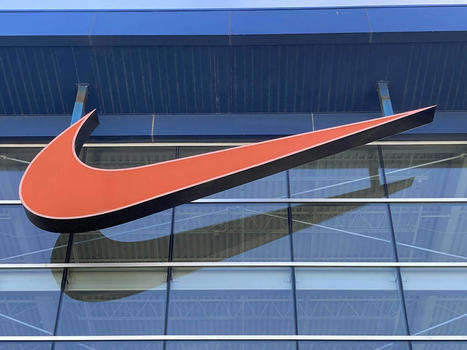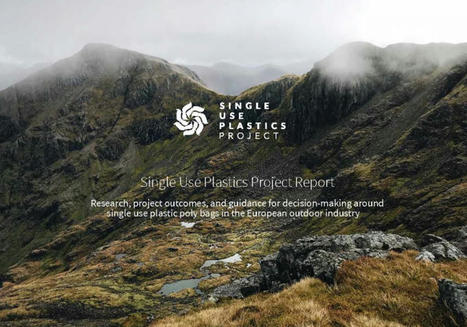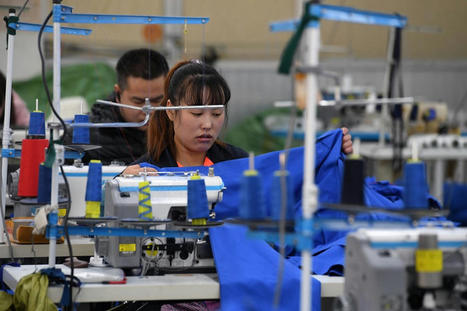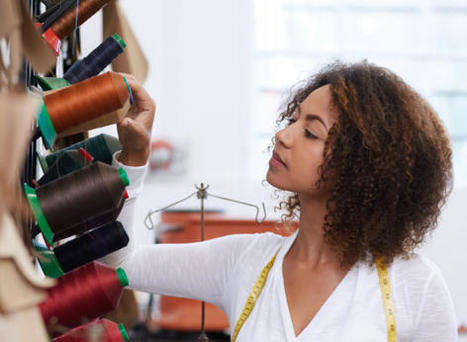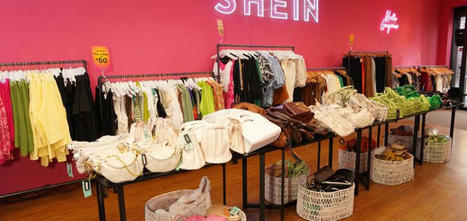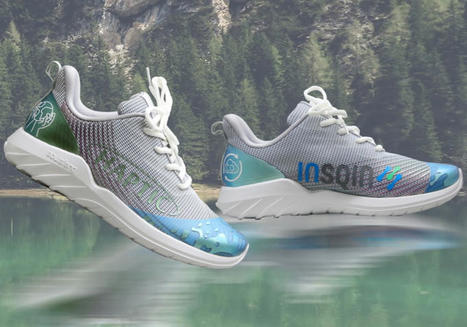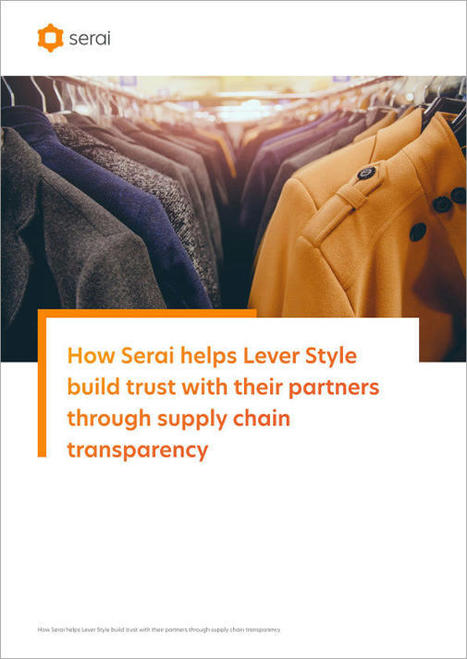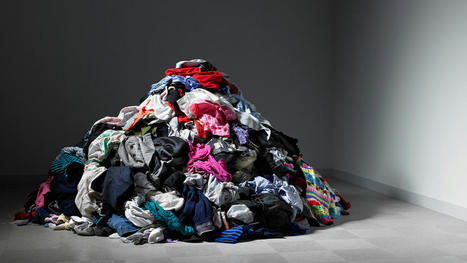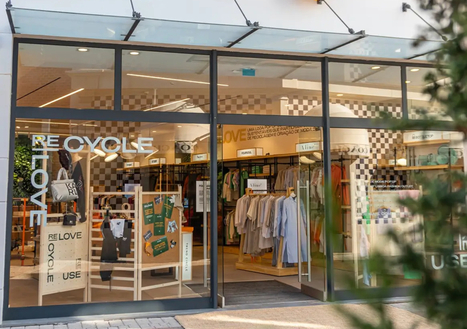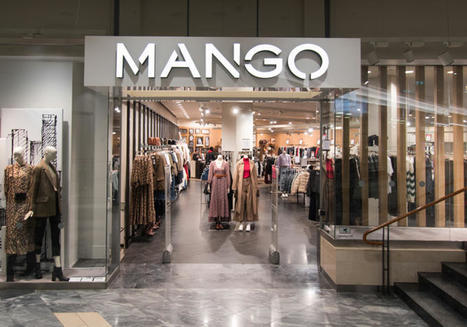 Your new post is loading...
 Your new post is loading...
A Nike shareholder is asking the company to take stronger action to protect human rights for its garment workers.
Tulipshare, which currently owns 276 Nike shares, filed a shareholder proposal that asks Nike’s board to assess and rethink how its supply chain upholds the company’s committments to human rights.
The proposal requests a report from Nike that details if the company’s supply chain upholds these values — and asks Nike to use specific metrics to track perfomance on forced labor and wage theft. Tulipshare also asked Nike to consider using a model contract clause from the American Bar Association (ABA) that protects human rights for workers in the supply chain.
“We are asking Nike to implement these clauses into all of its supply chain contracts, which will not only make human rights policies into ‘operational commitments’ but also continue to allow Nike to be leaders in supply chain innovation moving forward,” read an explanation of the proposal.
Tulipshare said that Nike acknowledged the receipt of the proposal, which was submitted on Thursday. FN has reached out to Nike for a comment.
According to Tulipshare CEO and founder, Antoine Argouges said Nike’s current reporting methods, including its annual Impact Report, do not adequately analyze how it addresses potentially using Uyghur forced labor in its supply chains.
Via EcoVadis
Patagonia, Inc. makes outdoor clothing and is committed to the environment. The Ventura, Calif.-based company was founded in 1973 and has operated in at least 10 countries worldwide; it has factories in 16 countries. Since 1985, the company has given 1% of its profits to environmental causes.
The company says its mission is tied to the products it sells: the enterprise profits from marketing outdoor clothing. Patagonia is committed to organic materials and running all its operations using renewable energy. Indeed, the apparel industry is responsible for 6.7% of the globe’s greenhouse gases. It releases as much as 3.29 billion tons of CO2 equivalents annually, according to Quantis.
“We’re already at 100% renewable energy for our owned and operated stores, offices, and distribution centers, but the real challenge comes from materials manufacturing, which accounts for 95% of our emissions,” says Patagonia’s corporate responsibility statement.
Via EcoVadis
The European Outdoor Group (EOG) industry association has unveiled new proposals aimed at addressing the issue of single use plastics in the outdoor apparel value chain.
A new report from EOG's Single Use Plastics Project (SUPP) recommends a system for recycling more plastic bags before they end up in incinerators, landfill or are sent for export.
EOG said the initial plan had been to find a plastic-free alternative material to protect garments and other outdoor equipment en route from manufacturers in Asia to brands in Europe but this had not proved the best option.
Via EcoVadis
Australian retail chain Cotton On has pledged to strengthen its commitment to sustainability by setting goals for carbon neutrality, sourcing more sustainable raw materials and reducing its use of water and virgin plastic.
In its first 'The Good Report', the company details the steps it is taking to reduce its environmental impact which include a pledge to be carbon neutral and use 100 per cent renewable energy in its own operations by the end of the decade.
The Cotton On Group is also committing to using only raw materials which have sustainable attributes by 2030, and that all of its polyester and other synthetic materials will be 100 per cent recycled by 2025.
Via EcoVadis
When fashion apparel is made, consumers do not understand the amount of waste that is created in making those products. Kate Dillion, founder and creative director at Australian fashion brand She Lion works to make sure every part of their supply chain is sustainable.
“Making garments and accessories does greatly impact the environment and a lot of people aren't aware about how that happens. A huge part of it is some consumer awareness, and understanding and insight about the impact that the creation of these things makes,” she said.
“I had no idea that there was that much water used when you make jeans. It was a huge upskilling experience to me and something that's completely made me rethink how I run my business and to ask a whole lot more questions.”
She has had specialist third parties come in and assess their supply chain ensuring everyone that she works with is ethically certified.
Via EcoVadis
The Sustainable Apparel Coalition (SAC), a nonprofit alliance promoting sustainable practices for the consumer goods industry, has entered into a partnership with the Initiative for Global Solidarity (IGS) to coordinate a project advancing environmental, social and labor assessment methodologies in the garment and footwear sector. The initiative is being launched in collaboration with the Apparel…
Via EcoVadis
Gildan Activewear has unveiled new environmental and social sustainability targets, with the firm keen to reduce its carbon emissions, boost its use of ‘preferred fibres’, and better support workers and their communities by 2030.
The company’s strategy comprises five pillars: climate, energy and water; circularity; human capital management; long-term value creation; and transparency and disclosure.
“This next generation strategy will push us to deliver even stronger ESG performance and continue to reinforce Gildan as a leading ethical, sustainable, and efficient apparel company,” said Glenn Chamandy, the business’ president and CEO.
Via EcoVadis
Rental fashion firm Rent the Runway (RTR) has launched a ‘Fast Fashion Free’ campaign to encourage consumers to donate “unwearable” garments.
The company has teamed up with Green Tree Textiles Recycling, which will recycle the stock collected into insulation for new buildings.
Rent the Runway says it planned the campaign’s launch to coincide with the new year as this is a time “when they [consumers] are already reassessing lifestyles on the whole”.
Via EcoVadis
A new report — co-authored by Fashion for Good and the Apparel Impact Institute (Aii) and sponsored by HSBC — for the first time charts a trajectory for the industry to meet the net-zero ambition, mapping the integral levers across existing solutions such as renewable energy, and emerging innovations such as next-generation materials and circular and other end-of-life solutions for textiles. Estimating an investment opportunity of $1 trillion to finance the transition, the report breaks down the funding needed by solution category and identifies the types of funders best placed to take advantage of the opportunity and benefit from the positive returns.
Via EcoVadis
International textile certifying body Oeko-Tex released its annual report on Monday, finding that sustainability certifications remain a top motivator among fashion. Noting how the past year upended the industry, “the rapid progress of digitalization and the increasing international focus on sustainability are having positive influences . ...
Via EcoVadis
Sportswear giant Nike has revealed more about its plans to replace 10 priority chemistries with ‘cleaner’ alternatives by 2025.
The company recently outlined the ambition in its FY20 Impact Report, entitled 'Breaking Barriers', but did not give further details.
Nike has now confirmed that the 10 chemistries are PFASs; dimethyl formamide (DMFA); dicumyl peroxide (DCP); zinc pyrithione (antimicrobial); bisphenols; formamide; formaldehyde; NPEOs; neoprene; and volatile organic compounds (VOCs).
Sportswear giant Adidas has launched its new 'Own the Game' strategy which includes a commitment that nine out of 10 of the company's products will be made from sustainable materials by 2025.
Expanding the company's activities in the area of sustainability is one of the three key objectives of Own the Game, alongside brand credibility and consumer experience.
Adidas CEO Kasper Rorsted said: “Our strategic focus is on increasing credibility of the Adidas brand, elevating the experience for our consumers and pushing the boundaries in sustainability.”
Via EcoVadis
|
More than 50 percent of fashion decision-makers say traceability will be a top-five enabler to reduce emissions in their supply chains, according to BoF and McKinsey & Co’s State of Fashion: Technology report. It is an essential tool to meet consumer and shareholder expectations around improving sustainability endeavours.
Technology platform FibreTrace offers real-time verification of products as they move through the global supply chain.
Via EcoVadis
Online retailer Shein plans to cut emissions across its supply chain by 25% by 2030, the company announced in September.
The targets are among the first public steps to cut carbon emissions for the company, which has become a formidable player in the U.S. fast fashion market. The growth has come with a heavy carbon footprint. Last year, Shein’s operations produced 6.3 million tons of carbon dioxide emissions.
“Today we’re taking a significant step forward, announcing a new set of 2030 goals that will help us accomplish emissions reduction targets for our entire supply chain over the next seven years,” said Adam Whinston, global head of ESG at Shein.
As part of its efforts, Shein set a series of sustainability goals using 2021 data as a benchmark, compiled as a greenhouse gas emissions inventory with the help of certification company Interek. The retailer outlined reduction targets for each emissions level, which includes working with hundreds of suppliers to implement greener practices.
BY THE NUMBERS: SHEIN’S EMISSIONS GOALS
42% - Percent by which Shein aims to reduce its scope 1, owned-operations emissions by 2030
500 - The number of partner facilities Shein and the Apparel Impact Institute will work with to implement energy-savings programs, as part of its scope 3 emissions targets
25% - The percent by which Shein aims to reduce its scope 3 emissions by 2030
Via EcoVadis
Only a third of companies have credible carbon emission reduction plans in place - with apparel among the worst offenders, according to the CDP intitiative.
The non-profit, which runs the world's environmental disclosure system, said more than 13,100 companies disclosed their plans to mitigate climate change last year.
However, only 4,002 had developed a low-carbon transition plan and just 135 - fewer than one per cent - reported on all 24 of the CDP's key indicators of a credible plan.
Via EcoVadis
German polymer materials manufacturer Covestro and Chinese companies Huafeng and Cyclone say they have jointly developed a 'more sustainable' way of producing high-quality running and sports shoes.
It makes use of Covestro's Insqin waterborne polyurethane (PU), textile technology company Huafeng's Haptic 3D textile printing system and recycled PET fibers from Cyclone to signficantly reduce carbon emissions.
Cyclone's recycled polyester yarns are used for the shoe uppers and coated using Huafeng's 3D Haptic textile printing process and Covestro's partially bio-based Impranil eco DLS polyurethane (PU) dispersion as a binder.
Via EcoVadis
Sustainability- a buzzword thrown around by fashion insiders, but what exactly does it mean? Sustainability, in simple terms, means to sustain something over a long period of time. As a policy, sustainability concerns itself with economic, social, and environmental betterment. When narrowed into fashion, sustainability means taking socio-economic and environmental-friendly approaches to the production, distribution, and consumption of fashion products.
Environmental Issues
The fashion industry, if charged on all counts of contributing to water waste, carbon emission, wildlife endangerment, and oceanic microplastic pollution would be found guilty. According to the BBC, the global fashion industry contributes ten percent of global carbon emissions and twenty per cent of water waste. The World Economic Forum (WEF) reported the fashion industry as the second largest water consumer. Thirty-five percent of oceanic microplastic pollution came from the fashion industry according to International Union for Conservation of Nature.
Via EcoVadis
Lever Style is a global company that offers a range of services for apparel design, development and manufacturing to some of the world’s largest apparel brands such as Stitch Fix, Rag & Bone, Paul Smith, Hugo Boss, Theory, Fila and many more.
With such diverse international clientele, quality and sustainability of their products were key priorities. Moreover, with more brands needing to prove the origins of their products, Lever Style wanted to stay ahead of the curve and provide this transparency to the brands they supply to.
However, with over 70 manufacturing and supplier relationships across Asia, this wasn’t an easy or straightforward task. Lever Style were also manually managing their partner data through various ERP, PLM systems and Microsoft Excel which was time-consuming and difficult to consolidate information across various departments.
Download this case study to learn how Serai’s Traceability and Visibility solutions helped digitise Lever Style’s vast amount of supply chain data, and empowered them with the insights to know what exactly is happening at every stage of their supply chain.
Via EcoVadis
Few industries tout their sustainability credentials more forcefully than the fashion industry. But the sad truth is that despite high-profile attempts at innovation, it’s failed to reduce its planetary impact in the past 25 years. Most items are still produced using non-biodegradable petroleum-based synthetics and end up in a landfill. So what can be done? New ESG strategies such as the use of bio-based materials, recycling, and “rent-the-runway” concepts have failed. Instead, we must stop thinking about sustainability as existing on a spectrum. Less unstainable is not sustainable. And governments need to step in to force companies to pay for their negative impact on the planet. The idea of “win-win” and market-based solutions has failed even in one of the most “progressive” industries.
Via EcoVadis
New legislation which would hold all major fashion brands accountable for human rights and environmental issues in their global supply chains is being proposed for the US state of New York.
The Fashion Sustainability and Social Accountability Act, which would apply to all brands with an annual turnover of more than US$100 million operating in the state, would be the first of its kind in the US.
The proposed bill would apply only to apparel and footwear brands and retailers which would be required to "identify, prevent, mitigate and account for how they address" the adverse impacts of their global production.
Via EcoVadis
European clothing retailer VIA Outlets has kick-started a new sustainability initiative with the launch of its first ‘Re.Love’ pop-up store in Lisbon, Portugal.
The company plans to establish several pop-ups throughout Europe which will champion ‘sustainable’ collections, secondhand fashion and rental.
Geert Paemen, group sustainability director at VIA Outlets, commented: “We are delighted to pioneer this new sustainability initiative, which complements the ambitious environmental targets we have set for our centres and highlights the important efforts being made by our brand partners in this field.”
Via EcoVadis
Second-hand fashion marketplace The RealReal has launched a new upcycled apparel collection in partnership with some of fashion’s leading firms to offer luxury items a new life.
The company has acquired unwanted stock from the likes of Stella McCartney, Balenciaga and Dries Van Noten to kick-start its new ‘ReCollection’ programme.
Los Angeles-based circular business Atelier and Repairs has been recruited to undertake product repairs in a zero-waste process. The reclaimed luxury pieces will be resold on The RealReal’s online consignment store for prices ranging from US$195 to US$2,450, with a portion of the proceeds to be donated to reforestation initiative, One Tree Planted.
Via EcoVadis
Spanish fashion brand Mango has announced that 79 per cent of its garments now integrate more ‘sustainable’ fibres.
These products now align with the principles of the brand’s Committed Collection, which it launched in 2017 with the ambition of offering sustainably-made clothing. At that time, just 44 per cent of the company’s portfolio comprised such materials.
“We have made the commitment to continue working to become a more sustainable company. This is why we are taking huge steps with very ambitious projects that will allow us to minimise our impact and achieve the strict sustainability targets we have set ourselves,” said Mango's CEO Toni Ruiz.
Via EcoVadis
Along with a hook to go climate-neutral, peer-to-peer resale marketplace Depop is, more or less, cutting ties with conventional fashion.
This and more was revealed in the company’s two-year sustainability plan released Thursday, envisioning “a new fashion system” based on commitments across governance, planet, people and platform. As with many businesses, Depop based its strategy on the United Nations Sustainable Development Goals, but unlike other sustainability reports, Depop’s report is brief and pointed.
“Fashion traditionally uses a top-down system — but that doesn’t fit today’s needs any more,” Maria Raga, chief executive officer of Depop, told WWD. “Not from a style perspective, not from an industry perspective and definitely not from an environmental perspective. So when we say ‘a new fashion system,’ what we mean is a way of making, selling, buying and experiencing fashion. One with space for many voices that’s kinder to people and kinder to the planet. Depop offers that space as a tech platform that’s easy to use, and even more so now with our sustainability plan.”
Via EcoVadis
|



 Your new post is loading...
Your new post is loading...

